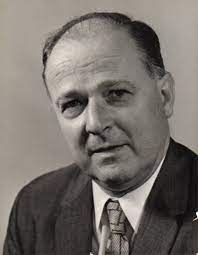Paul Ramsey (1913–1988) is regarded by many as one of the most important ethicists of the twentieth century. He was a distinguished writer on bioethics a generation ago, and served as Harrington Spear Paine Professor of Religion, Princeton University. His writings in bioethics include some of the most important early contributions to the field.
The Patient as Person: Explorations in Medical Ethics (1970) was and continues to be a prophetic study in biomedical ethics. This foundational publication treats issues such as consent, the definition of death and its significance for caring for the dying, organ donation, and health care allocation—in all of these debates offering scrutinizing and earnest questions and commentary that upholds the sacredness between physician and patient.


Fabricated Man: The Ethics of Genetic Control (1970) is a powerful and prescient work on the implications of modern scientific control over humanity—Ramsey interacts with issues in cloning, artificial (donor) reproduction, the meaning of parenthood, and genetic responsibility.
The Ethics of Fetal Research (1975) offered a moral and legal approach to experimentation on still-living fetuses, raising questions and making distinctions around moral medical policy.
Ethics at the Edges of Life: Medical and Legal Intersections (1978) is an examination of the ethics and legality of the treatment of pre-natal and elderly human lives—here Ramsey’s “feeling intellect” is well-captured by his defense of the weak and vulnerable of the human community and his demand that they be spoken and cared for.
Ramsey was known by his colleagues and students as an “intellectual whip”—able to probe and prod an argument from multiple angles—approaching matters of philosophical and scientific complexity with vigor and reason and, notably, loving compassion. His ethic was grounded in a commitment to both mind and heart.
Ramsey’s legacy is possibly best captured by the caliber of his students and followers—themselves now leading bioethicists of the twenty-first century. His inspiration and influence is exemplified by the continual response to and extension of his work, even beyond his death in 1988. Groups such as the Ramsey Colloquium—a periodic meeting sponsored by the Institute on Religion and Public Life and illustriously composed of Jewish and Christian theologians, philosophers, and scholars—have sought to represent Ramseyan ethical thought on the verge of the twenty-first century, a time rife with scientific development and moral confusion.


Two of the brightest of contemporary bioethicists—Leon Kass and Gilbert Meilaender (himself a student of Ramsey’s)—have displayed the intellectual and moral virtue of Ramsey in their work, both scholars having served on the President’s Council on Bioethics and both having received the prestigious Paul Ramsey Award for Excellence in Bioethics.
Ramsey’s contribution to bioethics at the time of its advent is lasting and impacting: he was a shining beacon and ethical searchlight not only in his response to the pressing moral matters of his day, but in his pioneering and anticipating the moral challenges of a future of science and medicine, and his commitment to the sanctity and dignity of human life.

Paul Ramsey presenting the Ashley Lectures at NYU, March 25, 1958
All photos on this page courtesy of the Ramsey family
